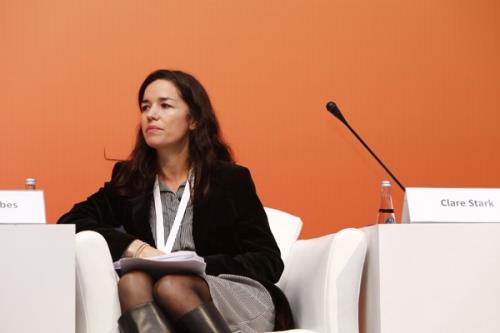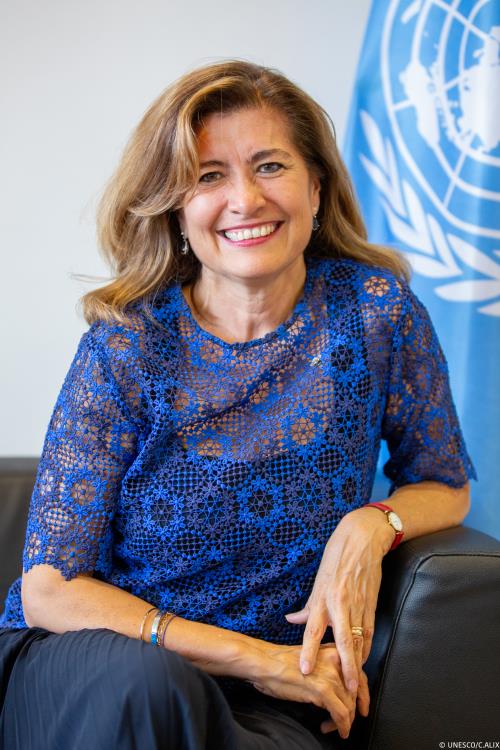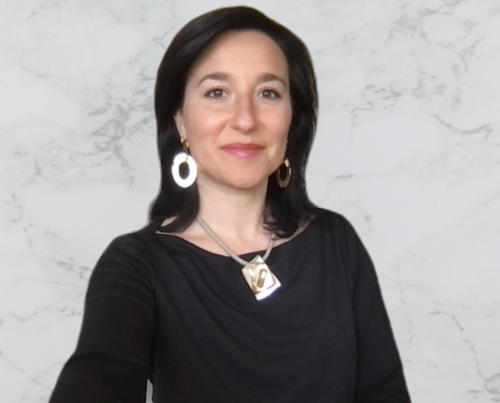WSIS Action Line C10: High-level interaction on implementing ethical AI globally
UNESCO
Session 425
Artificial intelligence (AI) is a frontline technology with profound implications for human beings, cultures, societies and the environment. AI has the potential to be our ally in the struggle for a more equitable, fair, and sustainable future. It is remarkable that AI generated some of the earliest alerts about the COVID-19 outbreak, even before it was confirmed, by routinely scanning hundreds or thousands of governmental and media data sources in multiple languages. This analytical capacity has also helped accelerate the discovery of the vaccines, and even understanding the protein structures. Self-learning algorithms and smart machines are playing an increasingly important role in our efforts to recover from the current crisis. Digital platforms and infrastructure have been broadened to keep our economies, our schools and our societies going.
We must always keep in mind that AI technologies also possess significant risks and challenges, especially in terms of deepening the existing divides, exacerbating gender disparities, and infringing on human dignity and human rights. This is why there are many international initiatives that have emerged to ensure that these technologies help to overcome the current crisis and mitigate future risks, while tackling the downsides. Thus, the European Union is negotiating its AI rulebook and UNESCO has adopted the first global Recommendation on the Ethics of AI.
There are various ways being devised to make sure that our common values and principles are realized in practice. UNESCO is currently developing two specific tools for these purposes: Ethical Impact Assessment and Readiness Assessment Methodology. These mechanisms are envisaged to help countries and companies evaluate the benefits and risks of AI systems, put in place risk prevention, mitigation and monitoring measures, and to deploy various redress mechanisms for those who have been adversely affected by these new technologies.
This session is aimed at taking stock of where we are and how to move forward with the tools that we have and that are about to be developed. Speakers will share their perspectives on what these tools should look like and encompass to make sure that developments in AI technologies do not create new forms of exclusion and inequalities and that countries have capacities to harness and justly distribute the benefits on a global level.

Clare Stark has 20 years of experience working in international relations and strategic planning. As UN Coordination Officer in the Priority Africa and External Relations Sector at UNESCO, she is responsible for enhancing UN system wide coordination on emerging technologies, including on artificial intelligence, biotechnology and neurotechnology and developing strategic partnerships with UN entities and the private and public sector. She co-chairs the High-Level Committee on Programmes Interagency Group on AI, bringing together 40 UN entities to strengthen the ethical development and deployment of AI to support the 2030 Sustainable Development Goals. Prior to this position, she served as Strategic Planning Officer in the Bureau of Strategic Planning at UNESCO where she supported the development of the Organization’s Medium-Term Strategy and Programme and Budget, and led on issues related to UN reform, sustainable development and multilateral cooperation. She has coordinated and contributed to a number of UNESCO’s publications. She holds a Master’s degree in International Environmental Policy from the Middlebury Institute of International Studies in Monterey, California and a Bachelor’s degree in Political Science from the College of Charleston. She is bilingual in French and English.

Gabriela Ramos is the Assistant Director-General for the Social and Human Sciences of UNESCO, where she oversees the institution's contributions to building inclusive societies. Her mandate includes tackling economic inequalities of income and opportunity, and promoting social inclusion and gender equality. She also oversees the youth support agenda, promotion of values through sport, fight against racism and discrimination, and ethics of science, including of neurotechnology and the internet of things. She has overseen the development and adoption of the first global instrument to promote the ethics of artificial intelligence, adopted by acclamation in 2021 by UNESCO's General Conference. She also launched the Global Forum against Racism, to catalyse the political support that member countries have given to this cause. On gender, she has advanced several initiatives, particularly to combat gender stereotypes and biases, including in new technologies.
Previously, Gabriela Ramos worked as Cabinet Director and Sherpa for G20/G7APEC at the OECD, contributing to increasing the OECD's global impact and leading key initiatives such as "Inclusive Growth", "New Approaches to Economic Challenges", "Climate Change and Growth", the gender strategy and work on well-being and children. At the G20, she contributed to the international reform of tax systems; the adoption of the gender quota (to reduce the labour gap) and the establishment of the W20; and the adoption of the principles of artificial intelligence, among others. She also oversaw Global Relations and the OECD's membership enlargement process.

John C. Havens is Lead of the Sustainability Practice of the IEEE Standards Association where he drives the strategy, coordination, and vision for The IEEE Planet Positive 2030 Program. He is also Executive Director of The IEEE Global Initiative on Ethics of Autonomous and Intelligent Systems that had two primary outputs – the creation and iteration of a body of work known as Ethically Aligned Design: A Vision for Prioritizing Human Well-being with Autonomous and Intelligent Systems and the recommendation of ideas for Standards Projects focused on prioritizing ethical considerations in A/IS. Currently there are thirteen approved Standards Working Groups and four completed Standards in the IEEE P7000™ series. John was responsible for: the initial ideation, framing and execution for bringing together the more than seven hundred global thought leaders to create Ethically Aligned Design; was Founding Chair of IEEE 7000 and IEEE 7010 and helped launch more than a dozen other IEEE Standards Working Groups focused on AI, AI Ethics, AI Governance, and AI Procurement; and continues to work on staff at the IEEE Standards Association to help further design, proliferate, and standardize the concepts of human-centric, applied ethical, values-driven design for Responsible Innovation of all technologies.
Previously, John was an EVP of Social Media at PR Firm, Porter Novelli, led Business Development at BlogTalkRadio, and was a professional actor for over 15 years. John has written for Mashable and The Guardian and is author of the books, Heartificial Intelligence: Embracing Our Humanity To Maximize Machines and Hacking Happiness: Why Your Personal Data Counts and How Tracking it Can Change the World.
For more information, follow John on LinkedIn or @johnchavens on twitter. John currently has over ninety citations on Research Gate and dozens of articles for outlets such as The Guardian, Quartz, IEEE Spectrum and Mashable.

Caroline has worked at the transformational edge of emerging digital technologies for more than 25 years, leading businesses’ strategic response to technology and executing on organisational changes, new market developments and new business model launches.
Following senior roles at Telefonica, Sodexo, O2 and the Digital Catapult, Caroline led Rolls-Royce's R² Data Labs for five years, delivering £400m of value back into the Group. During the pandemic, she pioneered the Emergent Alliance, which convened over 50 corporates, individuals, NGOs and governments for the first time to leverage expertise, data and resources to aid societal recovery.
Now leading the R² Factory founding team, Caroline drives the company’s strategic vision to create 'a safe space to do hard things' by blending unique experience, cutting-edge capability, thought-leadership and new ways of working to create new opportunities and business models. Caroline holds a Masters degree from Oxford and has an unfinished PhD in modern gothic literature and how we all use scary monsters to help contain social anxiety.

David Leslie is the Director of Ethics and Responsible Innovation Research at The Alan Turing Institute. Before joining the Turing, he taught at Princeton’s University Center for Human Values, where he also participated in the UCHV’s 2017-2018 research collaboration with Princeton’s Center for Information Technology Policy on “Technology Ethics, Political Philosophy and Human Values: Ethical Dilemmas in AI Governance.” Prior to teaching at Princeton, David held academic appointments at Yale’s programme in Ethics, Politics and Economics and at Harvard’s Committee on Degrees in Social Studies, where he received over a dozen teaching awards including the 2014 Stanley Hoffman Prize for Teaching Excellence. He was also a 2017-2018 Mellon-Sawyer Fellow in Technology and the Humanities at Boston University and a 2018-2019 Fellow at MIT’s Dalai Lama Center for Ethics and Transformative Values.
David has served as an elected member of the Bureau of the Council of Europe’s Ad Hoc Committee on Artificial Intelligence (CAHAI). He is on the editorial board of the Harvard Data Science Review (HDSR) and is a founding editor of the Springer journal, AI and Ethics. He is the author of the UK Government’s official guidance on the responsible design and implementation of AI systems in the public sector, Understanding artificial intelligence ethics and safety (2019) and a principal co-author of Explaining decisions made with AI (2020), a co-badged guidance on AI explainability published by the Information Commissioner’s Office and The Alan Turing Institute. He is also Principal Investigator of a UKRI-funded project called PATH-AI: Mapping an Intercultural Path to Privacy, Agency and Trust in Human-AI Ecosystems, which is a research collaboration with RIKEN, one of Japan’s National Research and Development Institutes founded in 1917. Most recently, he has received a series of grants from the Global Partnership on AI, the Engineering and Physical Sciences Research Council, and BEIS to lead a project titled, Advancing Data Justice Research and Practice, which explores how current discourses around the problem of data justice, and digital rights more generally, can be extended from the predominance of Western-centred and Global North standpoints to non-Western and intercultural perspectives alive to issues of structural inequality, coloniality, and discriminatory legacies.
David was a Principal Investigator and lead co-author of the NESTA-funded Ethics review of machine learning in children’s social care (2020). His other recent publications include the HDSR articles “Tackling COVID-19 through responsible AI innovation: Five steps in the right direction” (2020) and “The arc of the data scientific universe” (2021) as well as Understanding bias in facial recognition technologies (2020), an explainer published to support a BBC investigative journalism piece that won the 2021 Royal Statistical Society Award for Excellence in Investigative Journalism. David is also a co-author of Mind the gap: how to fill the equality and AI accountability gap in an automated world (2020), the Final Report of the Institute for the Future of Work’s Equality Task Force and lead author of “Does AI stand for augmenting inequality in the COVID-19 era of healthcare” (2021) published in the British Medical Journal. He is additionally the lead author of Artificial intelligence, human rights, democracy, and the rule of law (2021), a primer prepared to support the CAHAI’s Feasibility Study and translated into Dutch and French, and of Human rights, democracy, and the rule of law assurance framework for AI systems: A proposal. In his shorter writings, David has explored subjects such as the life and work of Alan Turing, the Ofqual fiasco, the history of facial recognition systems and the conceptual foundations of AI for popular outlets from the BBC to Nature.

A research and scientific leader in Artificial Intelligence, Alessandra is the Director of AI and Data Science at Shutterstock. Alessandra has over 10 years’ experience in research and innovation gained whilst working in academic and commercial environments. Alessandra is passionate in advanced analytics, machine learning, and computational models with the focus of transferring innovation from research to products.
As Global President of Women in AI (a nonprofit do-tank working towards gender-inclusive AI that benefits global society) Alessandra is working with a strong community of women to foster diversity, inclusion and equality for women and minorities while encouraging a global ethical approach in AI.
In her previous appointment Alessandra was Head of Analytics Research at Nokia Bell Labs where she was leading research teams in several locations and developing a successful strategy for the Data Analytics division while driving changes across different activities like her contributions to the Nokia AI Ethics Advisory Board.

Mrs. Erica Simmons is a sought-after public speaker on innovation, digital transformation, artificial intelligence, STEM technology and the Future of Work. She gained much of her experience during a successful 25 year professional career in the enterprise software technology industry. She is considered an expert on the challenges of integrating Artificial Intelligence in the Caribbean region including understanding infrastructure, cultural, governmental and commercial challenges to integrating transformational technologies of the 4th and 5th industrial revolution.
Mrs. Simmons is currently the Director of Technology Partnership Enablement for ServiceNow, a technology platform provider. She participates in several global technology initiatives including being a member of the Expert Group – Implementation of UNESCO’s Recommendation on the Ethics of Artificial Intelligence, a member of Institute of Electrical and Electronics Engineers (IEEE) Planet Positive 2030 Campaign and the Chairwoman of IEEE, Jamaica.
-
 C10. Ethical dimensions of the Information Society
C10. Ethical dimensions of the Information Society
-
 Goal 4: Ensure inclusive and equitable quality education and promote lifelong learning opportunities for all
Goal 4: Ensure inclusive and equitable quality education and promote lifelong learning opportunities for all
-
 Goal 5: Achieve gender equality and empower all women and girls
Goal 5: Achieve gender equality and empower all women and girls
-
 Goal 8: Promote inclusive and sustainable economic growth, employment and decent work for all
Goal 8: Promote inclusive and sustainable economic growth, employment and decent work for all
-
 Goal 9: Build resilient infrastructure, promote sustainable industrialization and foster innovation
Goal 9: Build resilient infrastructure, promote sustainable industrialization and foster innovation
-
 Goal 10: Reduce inequality within and among countries
Goal 10: Reduce inequality within and among countries
-
 Goal 12: Ensure sustainable consumption and production patterns
Goal 12: Ensure sustainable consumption and production patterns
-
 Goal 13: Take urgent action to combat climate change and its impacts
Goal 13: Take urgent action to combat climate change and its impacts
-
 Goal 16: Promote just, peaceful and inclusive societies
Goal 16: Promote just, peaceful and inclusive societies
-
 Goal 17: Revitalize the global partnership for sustainable development
Goal 17: Revitalize the global partnership for sustainable development